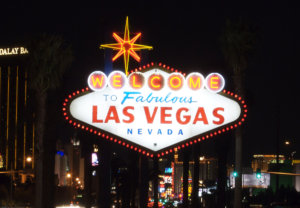Reflections of Gaming
The early days of pro regulations saw regulators punish the “good boys”. They easy ability to access their license holders and therefore they penalized them for infringements, while the unregulated went about their business Scott free! If we look at our industry, we see virtually the same today” – Nicc Lewis, CMO, Leverate

By Nicc Lewis, CMO, Leverate
We often ask: What is the future of our industry? I have given an answer to this question many times and each time with confidence. Do I have a crystal ball or some way to see into the future? Here and now, I admit that I do. The secret to my Nostradamus powers of prediction are far less mystical. Having spent more than a decade in the Online Gaming industry I see time and time again comparisons between Online Gaming and the Financial Trading industry.
The single biggest game changer in Gaming has been regulation. In particular in Europe and the US. We are now seeing in the Financial Trading industry, the very same beginnings as Gaming went through a number of years ago, with the main difference being the rate of change is much more accelerated in the Financial Trading sector.
In the beginning of gaming most online gaming companies took licenses from “off-shore” regulators such as Belize and Antigua. The barrier for entry was extremely low, there was zero taxation and there seemed to be zero consequences.

Europe and the US – two diametrically opposing directions. The US under historical pressure from lobby groups and fear of organized crime strengthened the position on banning all online gaming with the UIGEA Act in 2006. Until that point the Wire Act that had been in place for decades had failed to stop Gaming. UIGEA had a dramatic event with major international Gaming companies withdrawing from the US overnight.
In Europe, of all countries, Italy was the first to organize a regulated Gaming open market. In 2006, while the US closed down Gaming, Italy handed out the first licenses, breaking the state monopoly.
So what does this history lesson have to do with our sector? We can follow the transition of regulation and see how it affected the market and draw direct comparisons. The early days of pro regulations saw regulators punish the “good boys”. They easy ability to access their license holders and therefore they penalized them for infringements, while the unregulated went about their business Scott free! If we look at our industry, we see virtually the same today.
Something had to change. License holders questioned why they should take a license at all. Again, defying common perception of the disorganization of Italy, they lead the way in transforming regulation compliance.
They started black listing domains as a state and blocking access to residents. The black list was published by AAMS, the regulatory body, and the pace at which they operated accelerated, making virtually impossible for non-regulated companies to operate in Italy. Other countries followed suit, like ARJEL in France who went a step further sending legal notices by post to the domain owners.
I expect the same will start to happen in Europe soon for our sector. Examples from Gaming show not only that it is possible, but it is effective and shows a benefit from being regulated.
The second effect regulation in Gaming had on the market was access to mass media. Regulated companies can advertise freely: Google, TV, Radio, Press, Football Jerseys….
This had two effects on the market place. First, the access to mass media comes at high price, but yields high returns. The market consolidated with big players like BWin, Ladbrokes, William Hill and 888 taking market share.
The cost of marketing went up, the competition went up and the smaller players were either swallowed up, disappeared or found a small niche. The second effect of mass marketing is dealing with the traffic generated and the need to automate and optimize.
The pressure on ROI when the costs are so high is only part of the problem. Regulation means fees, taxation and restrictions which affect the returns. Gaming companies where quick to adopt automated optimization of campaigns, meaning that automated systems A/B test campaigns live and through machine learning automatically drive traffic to winning campaigns.
The companies also adopted automation in conversion and retention, understanding patterns through machine learning and big data to deliver personalization and micro segmentation to improve every step of the conversion and retention funnel.
Here again in trading, I see the beginnings of the same trends. Brokers are already speaking about higher marketing costs. The reason marketing costs are higher is due to strong competition driving up prices.
The competition, with access to mass media are taking large chunks of market share, making it more and more difficult for the smaller guys. The good news is that Gaming showed us a happy ending as well – although only for those who understand how to operate in the market.
Automation is one key and this is something our industry has started talking about only recently. The second is having a clear “Go to Market” strategy that goes beyond affiliates and IB’s. Big brokers with deep pockets can use access to mass media to gain large numbers of users. Smaller brokers need to focus on their values to traders and calve out their place in the market. It is a shift from hard sell to assisted buying decision. Something I have covered many times.
This is just a brief look drawing on a couple of examples. There are plenty more, just take a look around, the future is not that hard to predict after all.









